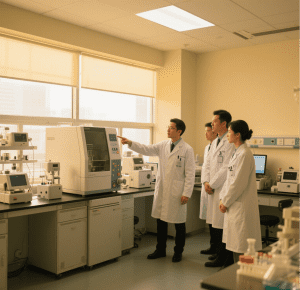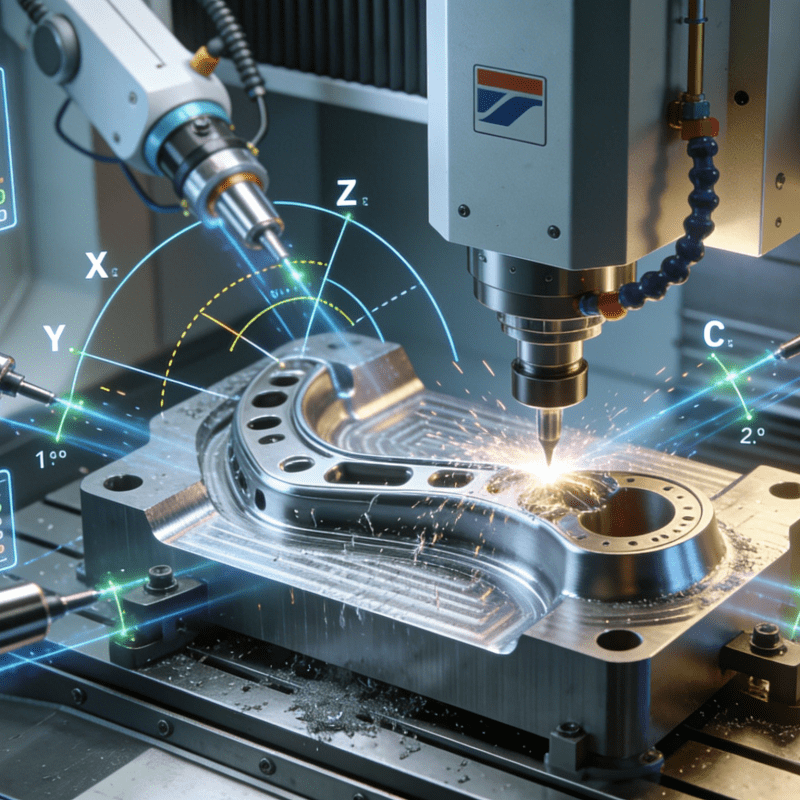Doctors discuss artificial intelligence: how much science fiction is acceptable?

In an age where intelligent automation is rapidly transforming industries, the medical field stands at a critical juncture. While industrial automation and automation equipment have long been revolutionizing manufacturing and other sectors, artificial intelligence (AI), a key component of intelligent automation, is now making significant inroads into healthcare. At the 129th Medical Assembly in Leipzig, this technological wave became the focal point of intense deliberation. Delegates from across the medical spectrum gathered to debate the far – reaching implications of AI, delving deep into issues such as sovereignty, regulation, and responsibility within the healthcare ecosystem, as well as the establishment of robust ethical frameworks. With more than 20 partly overlapping motions for resolutions submitted on the topic of “Artificial intelligence,” it was clear that the medical community recognizes the urgency of addressing how this powerful technology will shape the future of medicine.
A key topic at the 129th Medical Assembly in Leipzig is “Artificial intelligence”. More than 20, partly overlapping, motions for resolutions were submitted on this topic. Particularly important: AI must not jeopardize the doctor-patient relationship. The increasing use of AI systems for automatic speech transcription and processing could undermine trust if sensitive information is disclosed to third parties. As a result, it was decided to set up an interdisciplinary AI expert committee comprising representatives from the fields of medicine, IT, law and ethics to develop guidelines, among other things.
Co-determination instead of heteronomy
Doctors want to actively support and shape the development and introduction of AI instead of being at the mercy of market-driven, “disruptive” solutions. “We don’t have much time left,” said Dr Peter Bobbert, Co-Chair of the “Digitalization in Healthcare” committee of the German Medical Association (BÄK). “We now need sovereignty, independence and a real European ‘Airbus moment’ in AI development.” AI systems should not be introduced without experts. Problems in the digital infrastructure, in particular the lack of interfaces between different IT systems in hospitals, are cited as a major obstacle to the sensible use of AI.
Sovereign AI systems
In one of the motions, the Medical Assembly calls for regulatory measures to “limit the monopolization of AI systems in the healthcare sector by a few large providers”. Accordingly, “the development and implementation of AI applications by universities, independent research centers and professional societies […] must be promoted accordingly”. In addition to liability issues, doctors also see risks such as overdiagnosis and possible discrimination due to faulty or biased algorithms. It is emphasized that AI systems cannot do everything and that the quality of the data is crucial.
AI could even soon take over some of the medical tasks. “A few years ago, AI sounded like science fiction, today it is medical practice,” said Dr. Klaus Reinhardt, President of the German Medical Association (BÄK), at the start of the debate. “But its use also raises questions about data security, transparency and medical responsibility.” What is important to many doctors is that, despite all the technical advances, human care, empathy and the ability to empathize with patients are still of central importance. Doctors do not see AI as a replacement for the doctor, but as a supporting tool.
Not a “doctor” from Star Trek
“I don’t want a ‘doctor’ from the spaceship Voyager,” explained Dr. Tilmann Kaethner, a paediatrician from Lower Saxony. Like many of his colleagues, he fears a complete takeover of medical treatment by AI. In the Star Trek series, the Emergency Medical Hologram (EMH) embodies the ship’s doctor as a holographic, AI-based character. Doctors are concerned that this could make the human component and medical judgment redundant.
Doctor should have the last word
Studies have used AI to identify high-risk patients and thus prevent deaths. “Data saves lives,” emphasizes Prof. Aldo Faisal, digital health researcher at the University of Bayreuth and member of the German Ethics Council. In several motions, the medical profession is calling for clear guidelines and regulations to ensure that people remain the final decision-making authority. Although the manufacturer of the medical device is primarily liable for product defects, there are still uncertainties, which is why doctors are pushing for legal safeguards and clear regulations.
Doctors also discussed the “black box of AI”. The representatives of the German Medical Association called for transparency in AI-supported decision-making processes and clear labeling of AI-generated suggestions in the documentation. The Executive Board of the German Medical Association will vote on a corresponding motion. The promotion of digital and AI expertise within the medical profession is considered essential so that doctors understand how AI works and can use this technology sensibly and safely. “We are still at a very early stage of implementation, at most in the pilot phase,” explains Prof. Ulrike Attenberger, Head of the Department of Radiology and Nuclear Medicine at the Medical University of Vienna.
Independent and secure servers
The doctors also voted positively on a motion on the obligation to use secure and independent servers for medical AI systems. The explanatory statement states that this is the only way to ensure the long-term protection of sensitive health data and that “server locations outside the European Union pose considerable risks to data security”.
AI, as a crucial aspect of intelligent automation, has firmly established itself as an inescapable reality and a game-changing opportunity within the medical field, set to redefine everyday medical practice. Digital health applications that leverage AI are already in use, and the potential for integration with other forms of intelligent automation, industrial automation, and automation equipment in healthcare settings is vast. However, as the medical profession has made abundantly clear during the 129th Medical Assembly, with great power comes great responsibility. It is imperative that AI is developed, implemented, and regulated in a manner that upholds ethical standards, safeguards patient data, and preserves the irreplaceable human touch in medicine. By striking the right balance and working towards clear guidelines and regulations, the medical community can harness the full potential of AI and other automation technologies, ensuring a future where healthcare is more efficient, accurate, and compassionate than ever before.




















